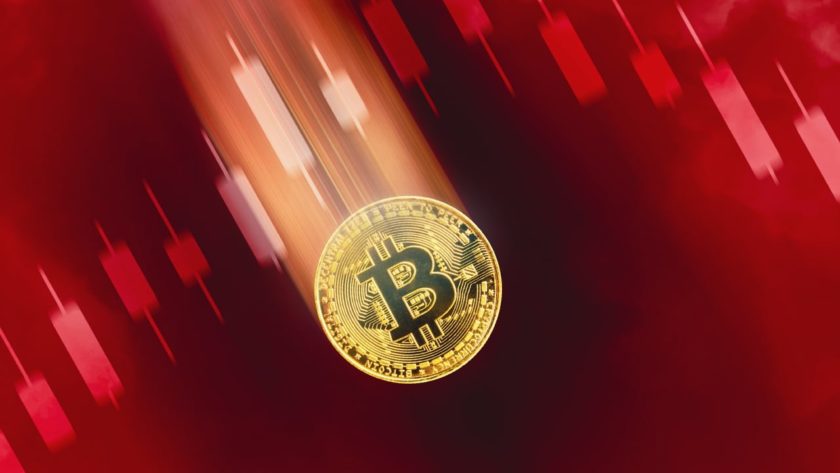The Russian government has abandoned its plan to establish a national cryptocurrency exchange. Instead, the country now wants to set up rules to regulate cryptocurrency exchanges, according to the local news agency Izvestia, which cited State Duma member Anatoly Aksakov.
The Russian lawmakers initially floated the idea of launching a unified cryptocurrency exchange as a part of the Moscow Exchange last year. However, the country’s Ministry of Finance was among the authorities against the development of such a government-backed crypto exchange.
“The [Ministry] did not support the establishment of one national crypto-exchange,” said Ivan Chebeskov, Director of the Financial Policy Department of the Ministry of Finance for the Russian Federation, adding that the idea now is to “legally regulate the possibility of creating such sites by business.”
Russian lawmakers have said they will no longer move forward with plans to create a state-level cryptocurrency trading platform. Focus on developing rules that would allow private companies to set up such trading platforms, overseen by Russia’s central bank, which is set to…
— Wu Blockchain (@WuBlockchain) May 29, 2023
Sanctions against Russia
Russia, because of its ongoing aggression against Ukraine, is facing heavy economic sanctions brought by the Western governments. European Union and its allies even imposed a SWIFT ban on Russian financial institutions, impacting cross-border business transactions.
Aksakov highlighted that regulated crypto exchanges would help Russian businesses to process cross-border transactions. However, such service facilitation by global crypto exchanges could bring sanctions against them.
The sanctions against Russia were extended to cryptocurrencies when, in August 2022, the European Union imposed a crypto wallet cap of EUR 10,000 on Russian accounts. Later, these sanctions were broadened to a crypto payment ban, eliminating Russians from using any crypto service registered in the EU.
Global crypto exchanges adhered to these rules and suspended their services within Russia. However, Binance, the largest crypto exchange in terms of trade volume, quietly reinstated its services for Russians, according to media reports. The exchange is now reportedly facing a US probe for possible violations of sanctions against Russia.
Earlier, the Bank of Russia termed cryptocurrencies properties and proposed an outright ban on crypto payments. Russian President Vladimir Putin also signed a law to outlaw payments in digital assets.
The Russian government has abandoned its plan to establish a national cryptocurrency exchange. Instead, the country now wants to set up rules to regulate cryptocurrency exchanges, according to the local news agency Izvestia, which cited State Duma member Anatoly Aksakov.
The Russian lawmakers initially floated the idea of launching a unified cryptocurrency exchange as a part of the Moscow Exchange last year. However, the country’s Ministry of Finance was among the authorities against the development of such a government-backed crypto exchange.
“The [Ministry] did not support the establishment of one national crypto-exchange,” said Ivan Chebeskov, Director of the Financial Policy Department of the Ministry of Finance for the Russian Federation, adding that the idea now is to “legally regulate the possibility of creating such sites by business.”
Russian lawmakers have said they will no longer move forward with plans to create a state-level cryptocurrency trading platform. Focus on developing rules that would allow private companies to set up such trading platforms, overseen by Russia’s central bank, which is set to…
— Wu Blockchain (@WuBlockchain) May 29, 2023
Sanctions against Russia
Russia, because of its ongoing aggression against Ukraine, is facing heavy economic sanctions brought by the Western governments. European Union and its allies even imposed a SWIFT ban on Russian financial institutions, impacting cross-border business transactions.
Aksakov highlighted that regulated crypto exchanges would help Russian businesses to process cross-border transactions. However, such service facilitation by global crypto exchanges could bring sanctions against them.
The sanctions against Russia were extended to cryptocurrencies when, in August 2022, the European Union imposed a crypto wallet cap of EUR 10,000 on Russian accounts. Later, these sanctions were broadened to a crypto payment ban, eliminating Russians from using any crypto service registered in the EU.
Global crypto exchanges adhered to these rules and suspended their services within Russia. However, Binance, the largest crypto exchange in terms of trade volume, quietly reinstated its services for Russians, according to media reports. The exchange is now reportedly facing a US probe for possible violations of sanctions against Russia.
Earlier, the Bank of Russia termed cryptocurrencies properties and proposed an outright ban on crypto payments. Russian President Vladimir Putin also signed a law to outlaw payments in digital assets.




